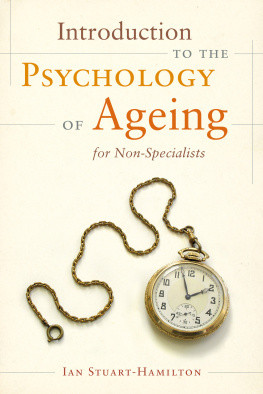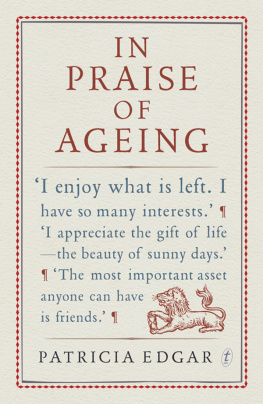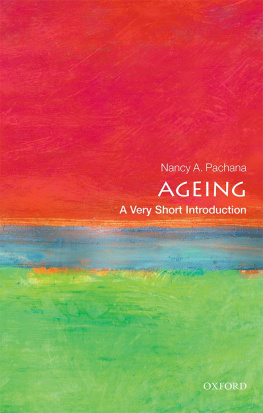First published in 2021 by
UCL Press
University College London
Gower Street
London WC1E 6BT
Available to download free: www.uclpress.co.uk
Text Author, 2021
Images Author and copyright holders named in captions, 2021
The author has asserted her rights under the Copyright, Designs and Patents Act 1988 to be identified as the author of this work.
A CIP catalogue record for this book is available from the British Library.
This book is published under a Creative Commons Attribution-Non-commercial Non-derivative 4.0 International licence (CC BY-NC-ND 4.0). This licence allows you to share, copy, distribute and transmit the work for personal and non-commercial use provided author and publisher attribution is clearly stated. Attribution should include the following information:
Walton, S. 2021. Ageing with Smartphones in Urban Italy: Care and community in Milan and beyond. London: UCL Press. https://doi.org/10.14324/111.9781787359710
Further details about Creative Commons licences are available at
http://creativecommons.org/licenses/
Any third-party material in this book is published under the books Creative Commons
licence unless indicated otherwise in the credit line to the material. If you would
like to reuse any third-party material not covered by the books Creative Commons
licence, you will need to obtain permission directly from the copyright holder.
ISBN: 978-1-78735-973-4 (Hbk.)
ISBN: 978-1-78735-972-7 (Pbk.)
ISBN: 978-1-78735-971-0 (PDF)
ISBN: 978-1-78735-974-1 (epub)
ISBN: 978-1-78735-975-8 (mobi)
DOI: https://doi.org/10.14324/111.9781787359710
This book is a fabric woven with the threads of multiple voices, ages and experiences. The resulting narrative is a combination of intersecting elements that make up the experience of age as, above all, the experience of living with and through many types of change. The northeasterly inner-city neighbourhood in Milans zone 2, which in recent years has been termed NoLo (North of Piazzale Loreto), is the physical setting of the volume, while much of the ethnography also took place in digital spaces and places that extend to the rest of Milan and, as the title of the book suggests, to much of the world beyond.
As outlined in the Series Foreword, this book forms part of a series based on the Anthropology of Smartphones and Smart Ageing (ASSA) project. Ageing with Smartphones in Urban Italy is not specifically a study of digital technologies among urban seniors in Italy. It approaches the subjects of ageing, smartphones and the urban Italian context in a broad anthropological frame, drawing on the holistic benefits of long-term urban and digital ethnography in order to examine the experiences of a wide range of people, of different ages and backgrounds, and how their lives play out amid multiple scales. These scales include multiple social contexts within the neighbourhood of NoLo, in the broader urban environment of Milan, across the country, and transnationally and digitally online in a changing Italy, Europe and world. A main focus of the book is the experience of midlife and older age, reflecting the ASSA projects collective research objectives and interest in studying ageing and technologies among older populations. However, this book also examines the lives of younger adults in Italy as a complementary perspective, discussing how individuals and groups invariably experience age and generation as an identity marker, alongside gender, sexuality, class and race. A range of categories and classifications are shown to impact upon individuals sense of self, subjectivity and well-being at different points in their life, including where they feel they belong as they grow older or come of age within and beyond the national context of Italy. The smartphone, as will be illustrated throughout the volume, has prominence in this figuring-out of life and the self, through the individual and collective forms of expression that the book examines.
The book is set within a broader global moment of rapid technological innovation, which, coupled with digital, urban and smart city developments in the city of Milan in recent years, has brought about a number of changes in how people live, communicate, work and retire. At the same time, ageing also involves experiencing a number of significant physiological changes, to and within the body, that affect how people live, view themselves and regard others. The book highlights how the smartphone device that accompanies people in their daily lives becomes embedded in wider practical, emotional and existential questions that in turn shape the embodied experience of life and the passing of time in this context. The smartphone, in this particular, anthropological account of ageing in a neighbourhood in Milan, is shown to be a tool for life, and for the multiple and creative ways in which research participants seek to tackle the various challenges and contradictions they experience and feel, or what I refer to as the ethical entanglements of lifes course.
Key findings
One of the core findings of the book relates to how categories of age are evolving in the light of wider changes in human sociality, mobility and aspiration in the digital era, and this is the focus of and which is consistent with evidence from other fieldsites in the ASSA project, such as Ireland and Brazil, where people expressed similar distinctions.
In NoLo, Milan, initiatives aimed at older people (anziani), such as active ageing or retirement groups, did not necessarily appeal to research participants who were retired. This was particularly seen among women, many of whom had experienced new forms of social agency through retirement, or generally in older age through volunteering, public service and neighbourhood activities, which constitute the focus of highlights the significance of cross-generational and cross-cultural social participation across the neighbourhood and in the experience of ageing with smartphones in this context.
At the same time, sociality has its limits. The theme of monitoring ones social life is something I pick up in sharing of personal data. However, it also relates to wider factors, such as economic necessity and social roles and responsibilities, that shape who can be available in various instances; for example, one may repeatedly be unable to go to or be late for choir because of uneven working hours or care responsibilities, but can stay connected and catch up on daily chit-chat via the WhatsApp group.
To put these practices into context, discusses traditions and social roles that emerge from different regions across Italy including kinship models or ideas concerning the family and the home before exploring how these ideas and practices have been shifting over time, and how they take on new forms and wider meanings in the light of wider social, economic and technological change and transformations. The smartphone is discussed in this chapter as a prominent instrument for modulating sociality, and for navigating what a number of research participants called their equilibrio, their equilibrium or balance, between social and private life and offline and online time, which people generally felt they wanted to or








